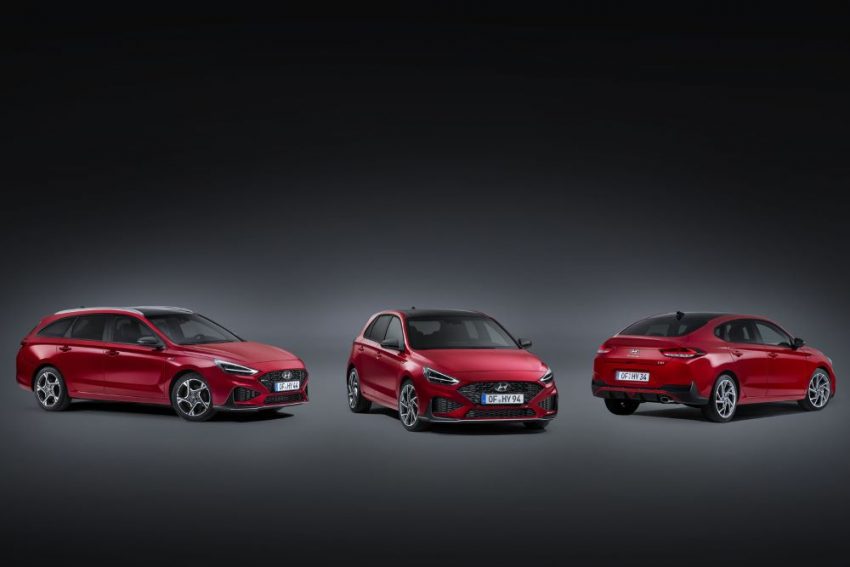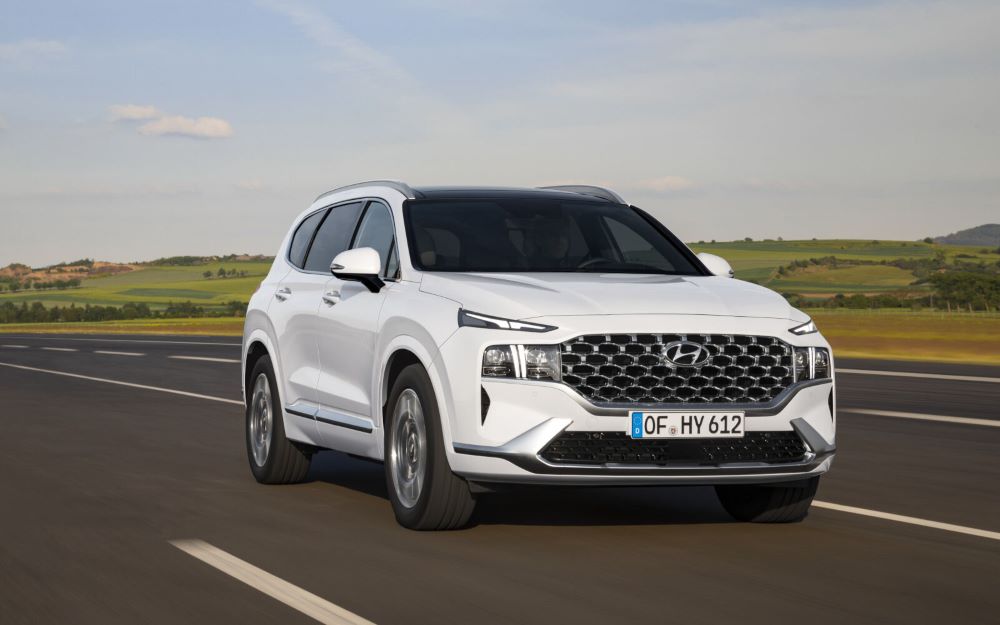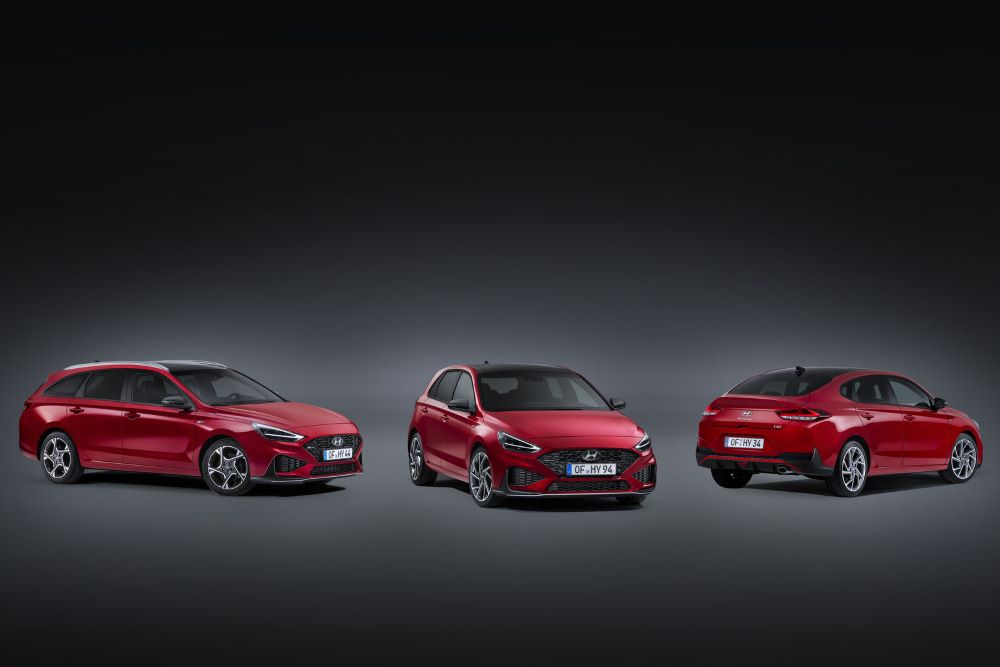
1.7.2020. Low Gross a VAT reduction adopted by the federal government valid New Hyundai vehicles from 1.7.2020 of course.
19 16% normal VAT rate is a temporary reduction in, 1 Fixed Term. July 31. Hyundai Motor Germany net prices to remain valid until December 2020, provides its customers more fully. As a result, the initial rates of the models of Hyundai will change as follows:


(Photo: Hyundai)Hyundai Santa Fe Facelift
Model
Entry-level price (VAT. 16 % VAT)
Hyundai i10 1.0
10.712,94 €
Hyundai i20 1.2
13.637,31 €
Hyundai i30 five-door 1.5
18.511,26 €
1.5 Hyundai i30 Combi
19.486,05 €
Hyundai i30 1.5 fastback T-GDI Hybrid 48 V
27.869,24 €
N performance Hyundai i30 2.0 T-GDI
33.435,29 €
Fastback N performance Hyundai i30 2.0 T-GDI
34.020,17 €
Kona Hyundai 1.0 T-GDI
17.750,92 €
Kona Hybrid Hyundai 1.6 GDI
26.221,85 €
Hyundai Electric Kona
33.971,43 €
Hybrid 1.6 GDI Hyundai Ioniq
25.149,58 €
Hyundai Ioniq Plug-in hybrid 1.6 GDI
31.193,28 €
Hyundai Ioniq, Electric
34.458,82 €
Hyundai Tucson 1.6 GDI
24.204,03 €
Hyundai Santa Fe 2.2 Idrc
44.840,34 €
Hyundai Nexus
77.008,40 €
KWh/100 km Hyundai 64 Kona electricity-kWh high-voltage battery (power consumption, combined cycle: by 14.7; g/km, CO2 emissions combined: 0) 40.794 96 million euros. More powerful version of the electric SUV in the month of March nosovice, Czech, Ulsan, South Korea in addition to the main plant’s production will be produced. Thus, eight triples and delivery status Hyundai electric Kona shortens the time. Kona Electric other electric models such as the Hyundai all the main versions now are available commercially.
Currently, Hyundai Motor Deutschland motto is “to be happy, agrees. Loading and parsing models 165-158, 5,3; combined: 5,7-6,0 3,8 urban; g/km extra urban 4,5; combined 4.2; CO2 emissions combined: L/100 km 97, of Kailua-Kona, Tucson and Santa Fe (fuel consumption: urban 7,5–7,0; out-of-town 5,6) L/100 km (i30, Ioniq Hybrid (fuel consumption) -; g/km CO2 emissions combined: Hyundai.“ Hyundai stock traders in stock immediately available to all participating a new car you have purchased 10,000 3,500 € price advantage. More information www.hyundai.de for.
Fuel consumption and emission figures
CO2 g/km emissions combined: 109-97; CO2 efficiency Class: C. 4,2–3,3; 4,8 combined; Hyundai i10 1.0 L/100 km fuel consumption:urban 5,7–65; 4.5 out of town
G/km (62 kW) for Hyundai Santa Fe gls 1.2 L/100 km fuel consumption: urban 7,1; extra-65, located in the town together, 5.8; CO2 emissions 132; CO2 efficiency Class: E. combined:
G/km Hyundai i30 1.5: urban 7.3; extra 5,2 kent; together 5.9; CO2 emissions L/100 km average fuel consumption: 136; CO2 efficiency Class: d
Hyundai i30 estate 1.5 L/100 km fuel consumption: 7.3 the urban g/km extra 5,2 kent; together 5.9; CO2 emissions 136; CO2 efficiency Class: C. combined:
For Hyundai i30 L/100 km fuel consumption 4,8 1,5-GDI 48 V: urban 6,5–6,2; out of town, 5.0, 5.4; with g/km CO2 emissions: combined Fastback T: 124; CO2 efficiency Class: b
G/km for the Hyundai i30 N Performance L/100 km fuel consumption: up to 10.2 City; out-of-town with 6.3 7.7; CO2 emissions 176; CO2 efficiency Class: E. combined:
G/km Hyundai i30 for Fastback N Performance L/100 km fuel consumption: up to 10.2 City; out-of-town with 6.3 7.7; CO2 emissions 176; CO2 efficiency Class: E. combined:
G/km for hybrid Hyundai Ioniq L/100 km fuel consumption: urban 3,8; extra-urban 4,5; 4.2 combined; CO2 emissions 97; CO2 efficiency Class: A+combined.
L/100 km fuel consumption of Hyundai I-oniq plug in Hybrid 1.1: place; g/km combined kWh/100 km power consumption: 10.3; CO2 emissions combined: 26; CO2 efficiency Class: A+combined.
Fuel consumption L/100 km Hyundai Kona 1.0 T-GDI: urban 6,7; out of town, 3.2; combined 5,7; CO2 emissions: g/km combined: 129; CO2 efficiency Class: C
Kona Hyundai 4,5 4,3 combined Mixed L/100 km fuel consumption: 4,0 urban; city:;:; g of CO2/km emissions combined: 99; CO2 efficiency Class: A+.
G/km (1.6 GDI Hyundai Tucson L/100 km fuel consumption: 8.1 urban; extra 6,2 kent; together 11; CO2 emissions combined: 158; CO2 efficiency Class: d
Fuel consumption L/100 km Hyundai Santa Fe: urban 7,5–7,0; out-of-town 5,6–5,3; combined: 5,7–6,0; CO2 emissions: g/km combined: 165-158; CO2 efficiency Class: b
(Kg H2/100 km urban Nexus for Hyundai as 0, 77; g/km extra urban 5.01; combined: 0,84; CO2 emissions combined: 0; CO2 efficiency class: A+hydrogen): fuel consumption.
Projected fuel consumption and CO2 emissions NEDC WLKP measuring the appropriate method specified, and the converted values was determined.
G/km the Hyundai Ioniq, Electric combined kWh/100 km power consumption: 13,8; 0 CO2 emissions; CO2 efficiency Class: A+combined.
Kona Electric for Hyundai 602: 30 program I. for combined kWh/100 km power consumption, g/km 0 CO2 emissions; CO2 efficiency Class: A+combined.
In accordance with the values specified wlkp projected fuel consumption and CO2 emission-measurement method were determined.


(Photo: Hyundai)Hyundai i30